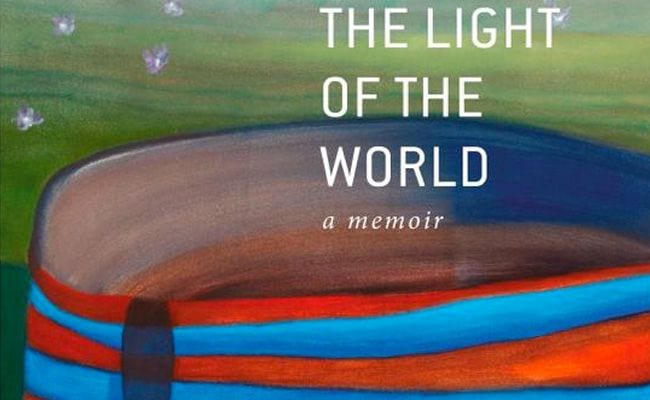
On 4 April 2012, Ficremariam Ghebreyseus collapsed on the treadmill in the house he shared with wife Elizabeth Alexander and sons Simon and Solomon. Doctors later told Alexander, a poet and professor, that her husband was dead before he hit the ground.
The phrase “widow memoir” instantly evokes Joan Didion’s The Year of Magical Thinking. The obsessively bookish may also recall Joyce Carol Oates’ equally harrowing A Widow’s Story. Alexander’s The Light of the World is no less wrenching, yet differs from her fellow widows’ works in its stubborn adherence to joy. Even as she recounts the dark moments following the loss of her life partner, Alexander’s memoir never succumbs to misery. Instead, this aptly titled book illuminates an uncommonly happy marriage. So persuasively does Alexander paint the exceptional Ghebreyseus that the reader closes the book disappointed at never having met him.
Alexander is not obsessed with the minutiae of heart disease. She does not work up the literature à la Didion. Instead, she has a few discussions with the cardiologist, who explains that the stress of growing up in a war zone affected her husband’s heart. Despite his healthy diet and a committed yoga practice, Ghebreyseus’s heart disease spread stealthily, a silent killer.
Ghebreyseus was born in Eritrea. His first name means “lover of Mary” or “servant of Jesus”; shortened to Ficre, it means love. The youngest of seven children, Ghebreyseus lost eldest brother Kebede to the civil war. The remaining family scattered around the world: Africa, Connecticut, California.
Once in New Haven, Ghebreyseus and two of his brothers opened Caffé Adulis, an Eritrean restaurant whose cooking drew positive reviews from
the New York Times writer R.W. Apple. Ghebreyseus’s Shrimp Barka (Alexander includes the recipe) was so beloved that new mothers demanded it from their hospital beds.
He was also a photographer, poet, and painter. He read so voraciously that his schoolmates dubbed him “mangia-libro”, or book-eater. He spoke the East African languages Tigrinya and Amharic, along with Italian, English, Arabic, German, and Spanish. He dreamed of opening an arts school in Eritrea: “I believe in it will be found great seeds for healing and peace. “
Large portions of The Light of the World recount happy memories. The couple met in 1996, bonding instantly over strong family ties and an appreciation of the other’s culture. Both were pursuing the arts. She appreciated his love of brightly colored shirts, while he loved listening to her chatting with girlfriends on the telephone. They had 16 years of cooking, writing, painting and traveling together.
Meanwhile, Alexander wrote “Praise Song for the Day” for President Obama’s first inaugural. She became the third black woman in history to earn tenure at Yale. They raised two sons. Ghebreyseus cooked professionally. He painted. When friends begged him to exhibit his work, he shyly waved them off. He was never quite ready, even when professionals exclaimed over his work. A parade of friends and family wound through their home. It was the kind of life anyone would wish for.
Solomon and Simon were aged 14 and 12 when their father died. Perhaps their presence saved Alexander from the kind of free-fall Didion and Oates describe in their books. Yet Alexander mourns. After her children leave for school, she returns to bed, searching for Ghebreyseus in the watery consciousness between sleep and wakefulness. She dreams of him, but in dream life Ghebreyseus isn’t quite right; he is missing teeth or wearing the wrong clothing. The dream market is out of food save a single chicken wing and a pork chop. After a time, the dreams stop.
Like Didion, Alexander awaits her husband’s return, leaving the houselights burning and paying his cell phone bill. She misses the friendship of a mate, the simple intimacies of buying underwear and sharing morning coffee. Didion, returning to her empty apartment after her husband John Gregory Dunne died, said she needed to tell somebody about his death, but the only person she wanted to tell was her husband. Alexander would understand this. Meanwhile, her hair turns white. Her hairdresser explains this is from shock.
Above the irrational waiting for his return, another part of Alexander’s mind is at work. She unravels the mysteries of the DVR and reluctantly agrees to a small birthday celebration. When a hurricane looms, she and her sons readies the house. She enlists friends to help clean Ghebreyseus’s painting studio, then divests the kitchen cabinets of ingredients that are going stale. One night she joins Simon in bed. Together they ride an elevator to heaven, where they visit Ghebreyseus’s afterlife painting aerie. He is not there; it is enough, it seems to visit.
Alexander is fortunate in having responsive friends and relatives. A fellow long-married couple bring meals to the house, then invite Alexander and her sons to dinner, serving a homely dish of pasta with onions. They visit relatives in beautiful southern France. Alexander’s parents, “mighty trees”, tend her carefully, courteously withholding their grief until she is strong enough to cope. Only then does her father cry over losing the man he called his son.
The Light of the World concludes with Alexander selling their Connecticut home and returning to New York City. There, death settles in a bedroom chair, ever-present. But life is ever-present, too, even a life cut unfairly short. And what befell Ghebreyseus is unfair; he was only 50 years old. Much was left unrealized. Yet his wife has managed the near-impossible; making art of an unreasonable death, ensuring that Ficremariam Ghebreyseus is never forgotten.


![Call for Papers: All Things Reconsidered [MUSIC] May-August 2024](https://www.popmatters.com/wp-content/uploads/2024/04/all-things-reconsidered-call-music-may-2024-720x380.jpg)



